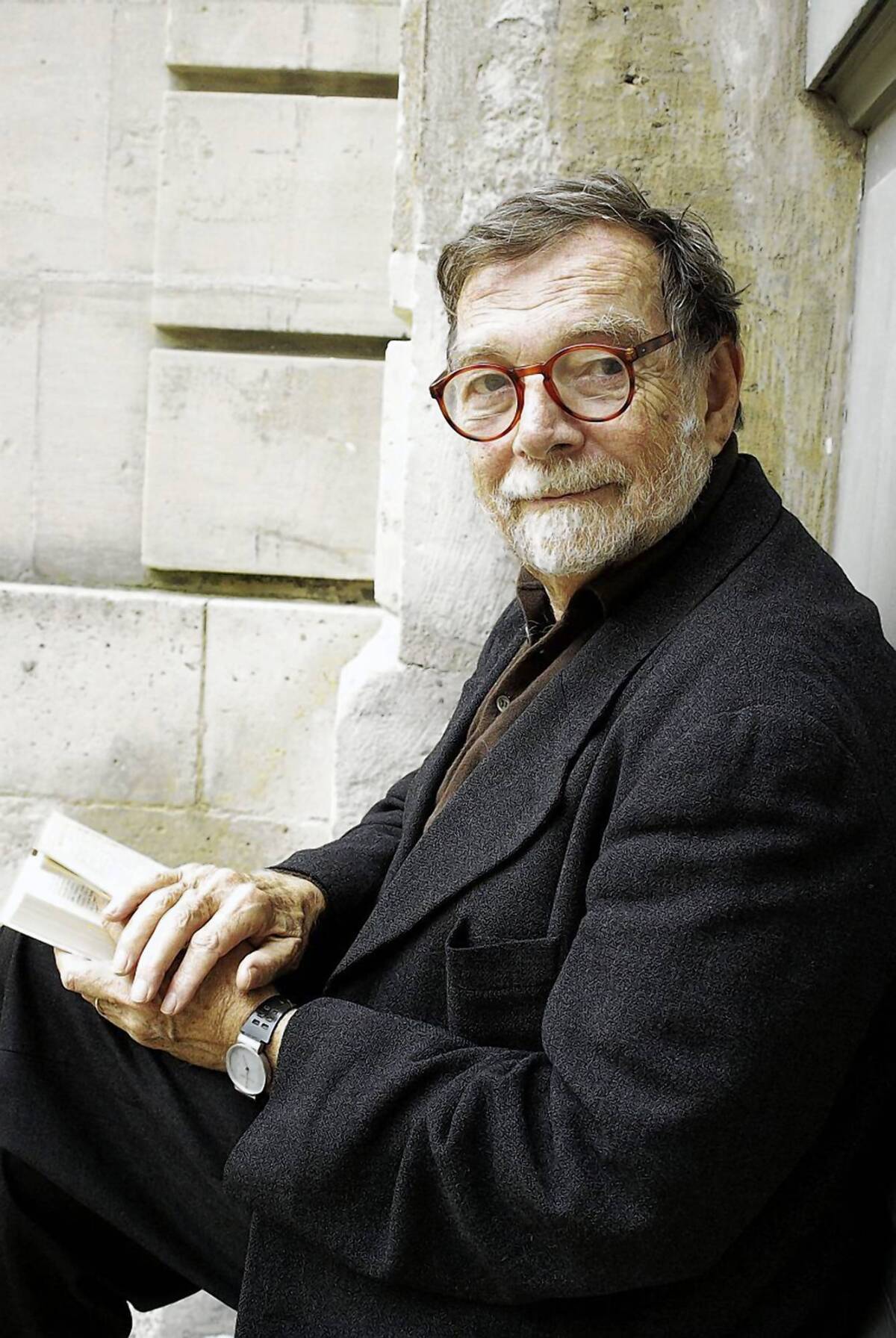André Schiffrin dies at 78; publisher founded nonprofit New Press

When André Schiffrin was fired in 1990 as editor in chief of Pantheon Books, it was regarded as a loud shot in the war between commercialism and quality in American publishing. There were protests by noted authors, including Studs Terkel and Kurt Vonnegut, and op-ed pieces that painted a pessimistic view of the industry.
In response, Schiffrin’s bosses pointed out that Pantheon had lost $3 million in his last year at the helm. His ouster ended a nearly three-decade career at the prestigious imprint, where he had worked with such writers as Jean-Paul Sartre, Marguerite Duras and Gunter Grass.
Schiffrin, who later founded the nonprofit New Press, died Sunday in Paris of pancreatic cancer. He was 78. Through his final days he had continued to seek out authors, dividing his time between New York and Paris as founding editor and editor at large, New Press Publisher Ellen Adler told the Associated Press.
His fight with Pantheon divided the world of letters. His critics, including many former colleagues, called him out for his lack of fiscal responsibility, while others cheered his prescient condemnation of American book publishing’s increasing emphasis on the bottom line.
“[W]hat a hero that fight with conglomerate publishing made him to so many publishers, particularly a generation of small independent publishers,” Dennis Johnson, co-founder of New York’s Melville House Books, wrote in a tribute Monday. “No one did so much, in fact, to define the term independent publisher coming into the 21st century.”
Schiffrin was a culture warrior from the beginning. The son of a Jewish publisher, he was born in Paris in 1935 and fled with his family to the United States during World War II. His father, Jacques, helped fellow exiles Helen and Kurt Wolff build Pantheon in New York, dying in 1950 when his son was 15.
After attending Yale and Cambridge, Schiffrin followed in his father’s footsteps, becoming an editor at Pantheon in 1962 when he was 26. He was named editor in chief in 1963 and managing director in 1969.
Particularly committed to publishing serious nonfiction, he promoted the work of notable thinkers, including Michel Foucault, Gunnar Myrdal, Simone de Beauvoir and Noam Chomsky.
It was Schiffrin who suggested that Terkel write “Division Street: America,” the 1968 book that established Terkel’s reputation as a master of oral history. Under Schiffrin’s leadership, Pantheon published several more books by Terkel, including his 1985 Pulitzer Prize-winning “The Good War: An Oral History of World War II.”
During the Vietnam War, Schiffrin signed a pledge refusing to pay taxes to support the military effort, seeing the publisher’s role primarily as one of engagement. Books, in other words, were not commodities so much as expressions of creativity and conscience, and publishing was less a business than a public trust.
The contretemps caused by his split with Pantheon made headlines across the country and abroad, including in the London Guardian, which called his firing “the biggest upset in American publishing since Salman Rushdie.”
Most of Pantheon’s senior editors quit in protest, and 350 authors, literary agents and others protested outside Random House, which owned Pantheon. A number of highly regarded authors left the imprint, including Terkel, “The Simpsons” creator Matt Groening and “Maus” author Art Spiegelman.
In his later years, Schiffrin wrote a series of books, including the 2007 memoir “A Political Education: Coming of Age in Paris and New York.” But perhaps his most resonant work remains “The Business of Books: How the International Conglomerates Took Over Publishing and Changed the Way We Read.”
Released in 2000, “The Business of Books” offered a look back at his career as well as a critique of contemporary publishing, in which books “have become mere adjuncts to the world of mass media, offering light entertainment and reassurances that all is for the best in this, the best of all possible worlds.”
He founded New Press in 1992 with funding from several sources, including the MacArthur Foundation and the Rockefeller Brothers Fund. He described it as “a new structure for publishing in much the same way that PBS created an alternative to commercial television.” Publishing about 50 books a year, it specializes in contemporary social issues, including race relations, women’s issues and education reform.
Schiffrin acknowledged that running a nonprofit press was a struggle. “People say, ‘What are you most proud of?’” he said in a 2007 interview with the Chicago Tribune, “and I say it is surviving. Because there was never an assuredness that we would do so.”
More to Read
Start your day right
Sign up for Essential California for the L.A. Times biggest news, features and recommendations in your inbox six days a week.
You may occasionally receive promotional content from the Los Angeles Times.








